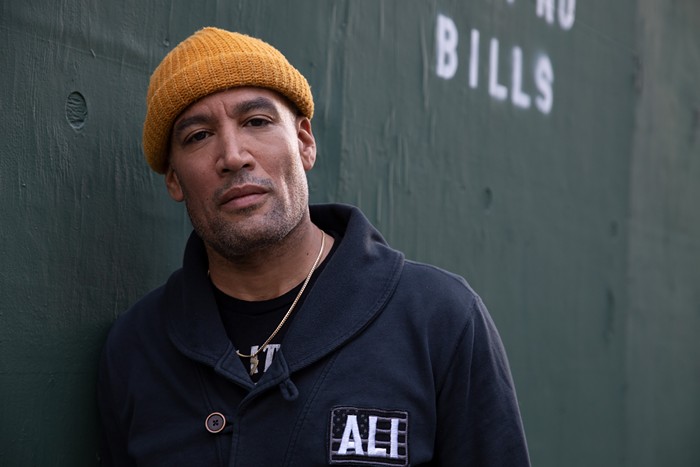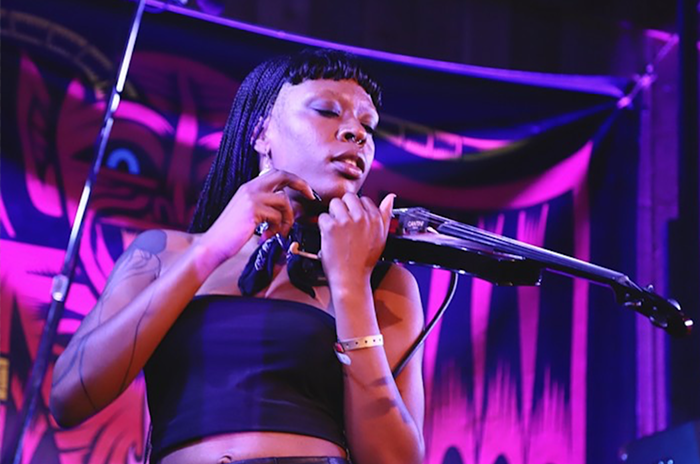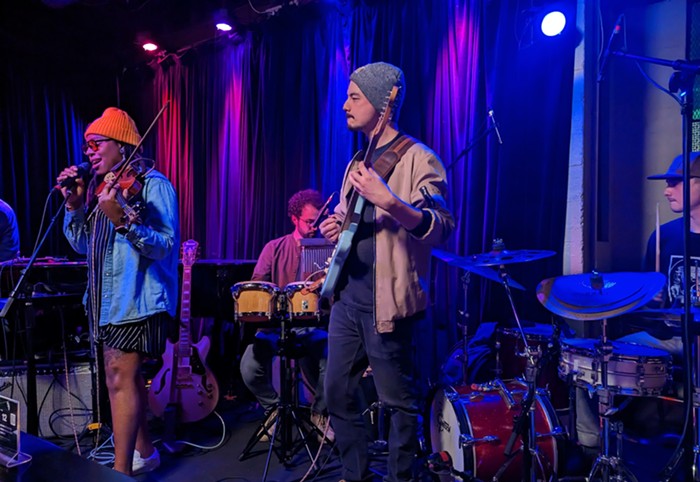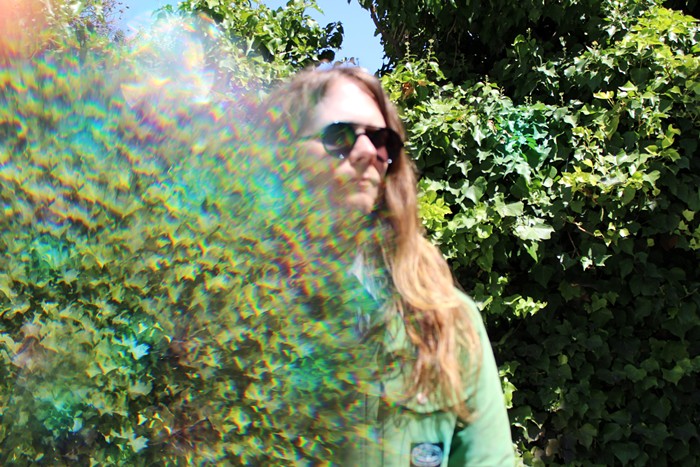AS A KID who grew up in patches and punk houses, shoulder tapping before seven-band shows at the scummy-but-loving all-ages teahouse, I remember how it felt—alive, communal, and bursting with energy. Like the rest, I had a band and a set of out-of-tune songs, and if people showed up when we mashed them out, the high was pure and unmatched.
Tim Harrington had a similar experience. And after 13 or 14 years in Les Savy Fav—he can't quite remember—the free energy of that virgin punk band remains. "A lot of times a band that's been around for a long time, the intensity fades," Harrington says from his home in New York. "Or it becomes like a normal job and you're like, 'Eh, this isn't very fun or glamorous or as exciting as I thought it was going to be.' For us, it's more exciting than I thought it was going to be."
Punk's ethos is simple in practice—don't sell out. But turning the corner of popularity and profitability have poisoned more than a few. Though they joke about their lack of professionalism, Les Savy Fav find respite in their steadfast separation of business and band. "It's just not product oriented," Harrington says. "It's process oriented."
The concrete was set in around 2000-01 with a pair of releases—the Emor: Rome Upside Down EP and Go Forth—that illustrated their truly modern punk sound. "There was a crossroads when we could've decided: Are you going to make this a job or not?" Harrington remembers of that time. "And I think we made the really deliberate decision to not."
It helped that Les Savy Fav all have fulfilling creative work—fitting for a band that met at the Rhode Island School of Design. "I'm a designer, Seth [Jabour] is an illustrator, Harrison [Haynes] paints, Syd [Butler] runs the label [Frenchkiss], Andrew [Reuland] is a filmmaker," explains Harrington. "No one in our band has sucky jobs." There was a time, however, when Les Savy Fav became enchanted by change. In the mid-2000s, the band announced it was working on a mellow, ambient, pretty record, Rabbit Trancing—the antithesis of the live, angular, heavily off-kilter, screaming punk that makes the band so great. Eventually Rabbit Trancing was scrapped, and in the years since, with help from the financial crisis, Harrington learned why.
"When the economy tanked a couple years ago, I was very much thinking about the late-'70s scene when New York was at the depths of the depth—a temper tantrum of punk," Harrington says. "This most recent recession had a way more pacifying affect where the music that came out of it was more of a thumb-sucking thing than crybaby freakout temper tantrums—if you want to consider all music like babies."
Renowned for his wild, inventive, and inclusive live performances, Harrington felt it important to push back against the segmented, inward-turning culture of modernity. "The energy that we like when we play live is sort of less common, in a lot of ways, than every single band I ever saw," he says. "It's one of the last vestiges of things in this world that you have to get off your ass and go to."
This tactile catharsis informed Les Savy Fav's latest record, Root for Ruin. They wanted to avoid concepts and snobbery and mine that original punk energy. "When you start a band," Harrington says. "You're just like, 'Oh my god, I can't believe we have nine awesome songs that we can record.'" Just like those days at the punk house.



















